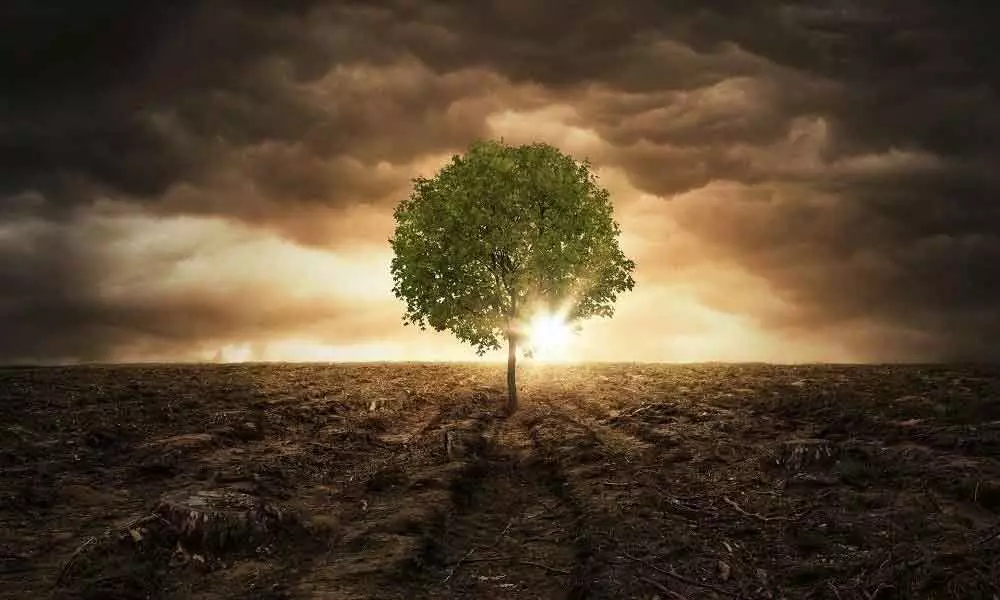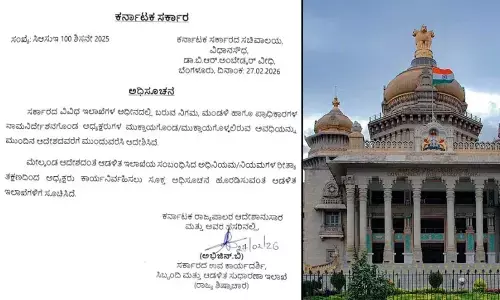Climate change: Solid action need of the hour

COP25 has begun in Madrid amid uncertainty over the venue - first it was Brazil and later Chile, but social unrest in Santiago saw the conference moved to Madrid at the nick of the time.
COP25 has begun in Madrid amid uncertainty over the venue - first it was Brazil and later Chile, but social unrest in Santiago saw the conference moved to Madrid at the nick of the time.
The Conference of Parties (COP) in which nearly 200 countries are taking part has begun against the backdrop of a high level climate interest in the UK election as well as warnings by the UN that global emissions have climbed 1.5 per cent a year on average for the past decade.
Around 30 heads of States and the UN Secretary General Antonio Guterres are attending the meeting. COP25 is a stepping-stone to 2020, considered as the most important year for global climate efforts since the Paris deal was agreed in 2015.
It is so because countries are expected to upgrade their carbon-curbing plans for the first time and potentially also outline their long-term plans to get to net zero emissions, ahead of crunch summit in Glasgow next year, COP26.
In the meantime talks in Madrid need to tidy up outstanding questions about the rules of the Paris Agreement. COP25 is the actual conference of the parties to the UN Convention on Climate Change, the United Nations Framework Convention on Climate Change (UNFCCC), which is tasked with making sure that the convention agreements are implemented.
Key meetings will centre on how the landmark 2015 Paris Agreement becomes fully operational, in particular, mechanisms for trading carbon, as well as the groundwork needed for fresh climate pledges due to be made by all Paris signees before the end of 2020.
Evidence is piling up of the impacts of climate change, especially in extreme weather events, and these impacts are taking a greater toll on our planet. The science shows that emissions are still going up, not down.
According to the 2019 World Meteorological Organisation Greenhouse Gas Bulletin, levels of heat-trapping greenhouse gases in the atmosphere have reached another new record high.
This continuing long-term trend means that future generations will be confronted with increasingly severe impacts of climate change, including rising temperatures, more extreme weather, water stress, sea level rise and disruption to marine and land ecosystems.
The UN Environment Programme has warned in its 2019 Emissions Gap Report, that greenhouse gas emissions reductions of 7.6 per cent from 2020 to 2030 are needed to meet the internationally agreed goal of a 1.5 degree centigrade increase in temperatures over pre-industrial levels.
It is a tall order and the time for correctional measures is only growing shorter. This is the first time that in the 25 years that delegates have gathered to wrangle over climate policy that a COP has played out under such a watchful public eye.
It is for a reason that the theme for COP25 is "time for action". The unprecedented fires in Brazil, the Arctic and Australia, to terrifying cyclones that laid waste to Mozambique and the Bahamas, to the flooding of Venice, the impacts are growing by the day.
What is required is not just emission commitments, but a complete system overhaul. Climate change affects us all in every which way possible.










